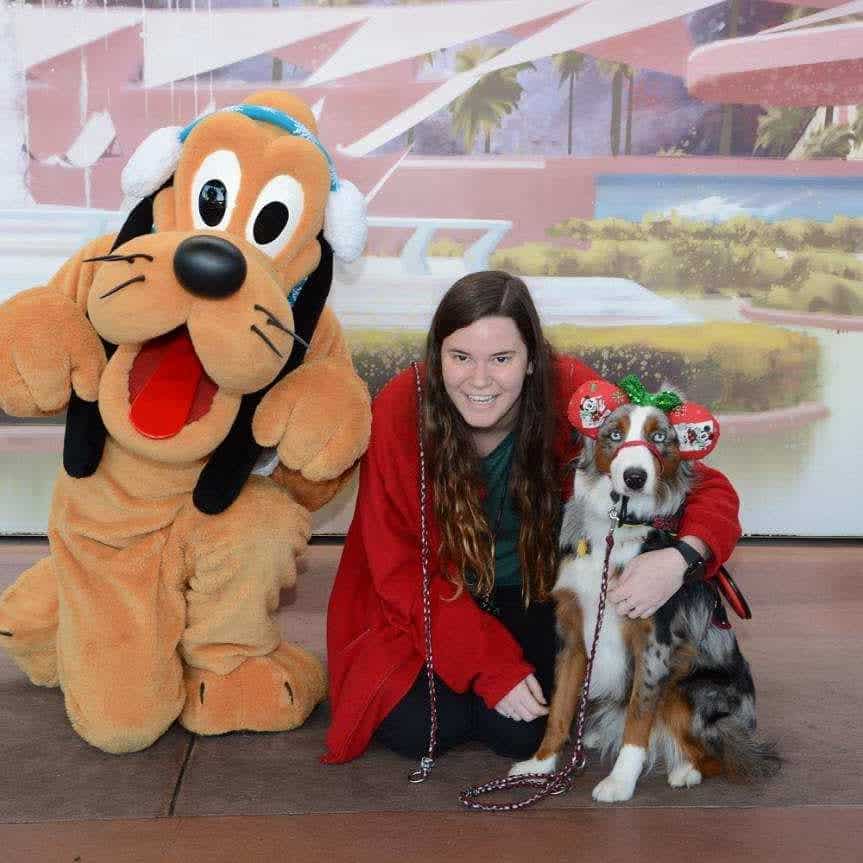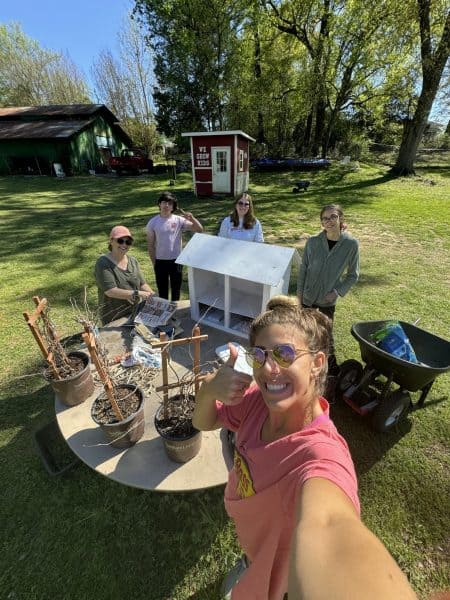Dogs provide assistance for stressful college life
January 31, 2019
People often leave behind their family pets when they come to college. With more responsibilities, it can be too hard for some to take care of a dog. But the absence still lingers.
Enter the UA dog sightings GroupMe, more than 1500 members strong. These students send pictures of dogs they encounter, discuss dog-related topics and meet up frequently.
“I’ve met up on the quad with some people before to play with some little pups,” said Drew Whinery, a freshman majoring in music performance. “Everyone there was friendly, and it was all kinds of people who you maybe wouldn’t meet otherwise, but we all had something in common: our love for dogs.”
Scientists have closely studied the relationship between people and their dogs. Their findings support the feeling of closeness we receive from our pets.
“Humans and dogs have been coevolving for 30,000 years,” associate anthropology professor Christopher Lynn said. “There is an interdependence that has formed between the two. Research has shown that oxytocin, the bonding hormone, is released in both dogs and their owners from physical touch.”
But certain pets exceed their evolutionary expectations. Service and support animals travel with their owners to college, physically and emotionally helping them adjust to their new lifestyle. Though the difference between service and support animals is often overlooked, it is an important distinction to make.
“Service dogs are trained in one, two or even more specific tasks to help their owners with a disability,” Lexi Wrist, a graduate student in chemical engineering said. “They have public access training, which allows them to go into public places, as well as housing rights. Support animals only have housing rights, which requires that a landlord or housing facility let the animal stay with the owner at no extra cost. They’re still important, helpful and needed, just different.”
Wrist has a service dog named Hubble to help her with hemiplegic migraines that can leave the left side of her body without feeling. She still considers Hubble a service dog in training, as he is still learning tasks such as retrieving a water bottle from a closed refrigerator.
“My dog gives me the freedom to go out and worry less about having an attack,” Wrist said. “He can alert me when I’m about to have a migraine, and I can use a sort-of EpiPen for migraines. This can lessen the time that I’m unable to do things, [with my] attacks [going from] three to eight days down to seven hours.”
Support animals are perhaps more common on campus. A physician’s note can make a personal pet a support animal, granting it housing rights. This allows their owner to have the emotional help of a dog without the cost barrier of pet rent.
“I have a support animal that helps me with depression and emotional destabilizations,” said Logan Elkins, a freshman majoring in computer science major. “He gives me focus and structure, since I need to make sure he’s taken care of every morning. He makes me responsible for more than myself.”
Elkins rescued his dog Chance from a Houston shelter. After keeping him for some time, Elkins realized Chance kept him going and got the necessary paperwork to register his dog as a support animal.
“In March of 2014, my father passed away in a car accident, and I was having to take care of my stepmother and little brothers,” Elkins said. “By the beginning of my senior year, my stepmom was able to go to counseling and heal and was able to take more of a motherly role, relieving that responsibility from me. And that led to me becoming really depressed because all those feelings I had repressed for four years came back. With Chance being there, he helped me more healthily work through my issues and my problems.”
Lynn believes the need for support from dogs has been growing in recent years as social media involvement has been increasing.
“There is a cost to the age of communication, a cost to being so connected all the time,” Lynn said. “We don’t necessarily have more stresses than in the past, but we are more aware of the things we believe we should worry about. Anxiety, depression and suicide rates have been spiking, likely from seeing people’s successes, feeling more pressures from the world. Dogs are reliable sources of the interaction we need as social creatures, and they love us unconditionally.”
For those without official support dogs, the UA dog sightings GroupMe is the best they can do. Students in the group are benefiting from the communication between dog enthusiasts, alleviating college stress as best they can.
“I think that seeing pictures of everyone’s dogs definitely helps me out emotionally,” Whinery said. “I may be feeling down or stressed out one day, but I can always open my phone to new pictures of happy little pups.”











